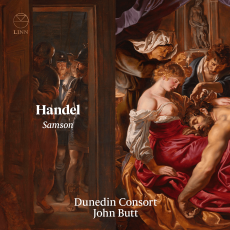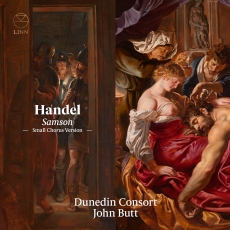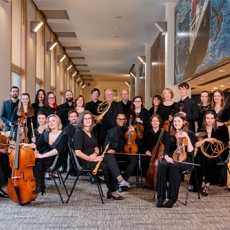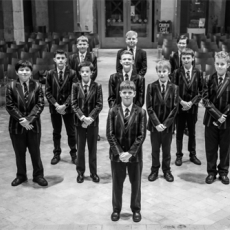Dunedin Consort - Handel: Samson - All Music
4.5*
Handel's Samson, with an adapted text by John Milton, was among the most popular of his big oratorios in the composer's day, and Handel revived and revised it several times. Nowadays, though, it is not often performed or recorded. There are several reasons for this, including the work's length (nearly three and a half hours in the original 1743 version, performed here: Handel cut it for subsequent performances), a good deal of uncertainty as to how it was supposed to sound, and the odd mixture of oratorio and opera, with heroic arias for the lead character that really don't lead anywhere. This reading by the Dunedin Consort under John Butt makes a good case for the 1743 version and generally manages to put across why the oratorio was so successful. Butt uses a good-sized chorus, augmented on the top line by a group of boy sopranos, and with this, he brings out the contrasts Handel built into the work. The music consists of sections with big, quintessentially Handelian arias and choruses, broken up with stretches of recitatives and quieter arias that reflect on the figure of Samson, the warrior of the "living God." Butt and the Dunedin Consort keep things moving and can move into and out of an operatic mode as needed. The soloists are uniformly strong: Samson's "Total eclipse!" (evocative of Milton's own blindness) and the soprano's "Let the bright seraphim," sung by veteran Mary Bevan, could become standard readings. The momentum holds up over the entire long version: the album is well recorded by Linn in an appropriate London church, and in general, this is both an important and an enjoyable Handel recording.




